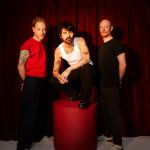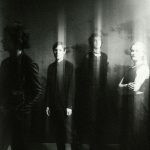Di, 7. Apr 2026
FM4 Indiekiste presents ARCHIVE
“The goal has always been to try and make the best records we can”
Over three decades of continually evolving line-ups, ever shapeshifting combinations of genres and a dozen studio albums, Archive have established themselves as one of the most enduring and exploring British bands of the last 30 years. They have amassed a huge following in Europe, where they play 3000 or 4000 capacity venues – twice, over consecutive nights, in the bigger cities. However, in much the same way as Seattle’s Jimi Hendrix became a star in the UK before his American homeland and Kraftwerk experienced a slower journey to success in their native Germany than further afield, in Britain Archive remain a relatively-well kept secret. Despite the enormous press acclaim lavished on their genre-busting 1996 debut, Londinium, their profile at home is dwarfed by that in Europe and many of the albums that sell so well on the continent haven’t seen a British release at all.
“We had a lot of record company and personnel problems at the beginning,” sighs co-founder Darius Keeler. “We put so much energy into making Londinium we actually split up. We were very difficult to deal with, but then the label phoned up a few months later to say we were selling in Europe and that the French thought it was the best album since [Nirvana’s] Nevermind. We did three days press in Paris and everything went nuts. The European labels had never suffered any of the politics the British ones did – all they knew was success and sales. So we concentrated on Europe, which was probably the best decision we ever made. We’re bigger now than we’ve ever been.”
Lately, British audiences have started to catch up, a situation that should gain further momentum with new album Glass Minds. Released on British-Belgian label PIAS, the 13th Archive album is a sonic and emotional odyssey through electronics, motorik rock, subtle dance grooves and beautifully heartfelt songwriting. As with so many of their albums, it sounds different from its predecessors and yet is somehow recognisably, inimitably Archive.
“There’s always a certain melancholy to Archive music,” Keeler observes about their genre-hopping exploits. “That’s what holds it together and like me, maybe people are attracted to emotional music with a bit of depth. For me, I need to feel something.”
The Londoner – whose musical passions range from Stevie Wonder to the Who – suggests that he was first drawn to the emotional possibilities as a child, listening to classical music and playing French horn, “the most melancholy instrument.” Keeler was also hugely impacted by the early 90s dance scene, and remembers hanging out with the likes of Youth or Moody Boys. “Or having a party with Jimmy Cauty from the KLF in his garden with a huge sound system and lasers. It was a beautiful, exciting time.” By which time Keeler and co-Archive founder Dan Griffiths were writing and producing with pioneering drum & bass outfit Genaside II, a blueprint of sorts for Archive.
After that band fell apart, the first Archive line-up was completed by rapper Rosko John and Iranian-born singer Roya Arab, which gelled brilliantly creatively if not personally. “After making Londinium we couldn’t be in the same room with each other,” Keeler admits. They remodelled around soulful singer Suzanne Wooder for the 1999 second album, Take My Head, which spawned enduring crowd favourite ‘You Make Me Feel’, but spells on two different major labels left them half a million pounds in debt. Fatefully, after a Garnier advert bailed them out financially, things further took off in France when acclaimed director Luc Besson commissioned Archive to write the soundtrack for Le Mans race film Michel Vailliant. In the same period – with Craig Walker as lead singer – 2002’s You All Look The Same To Me (featuring 16-minute European radio smash ‘Again’) and 2004’s more guitarry Noise turned Archive into major stars on the continent.
Since the 2004 arrival of singer/guitarist Pollard Berrier and vocalist/guitarist/percussionist Dave Pen, the band have settled into a solid quartet including the two co-founders, forming the core of a revolving musical collective in which additional members influence the music and in turn the direction of the music can require additional members. This has produced albums such as 2006’s Lights and 2009’s conceptual double whammy Controlling Crowds I-III and Controlling Crowds: Part IV, protest-type responses to the state of the world which threw up enduring favourites such as ‘Bullets’. Another singer, Sydney-born Holly Martin, fronted 2012’s With Us Until You’re Dead, the first Archive album to receive a British release in a decade.
The band’s prolific output continued with 2016’s The False Foundation and huge, visually eye-melting accompanying tours, although Keeler admits that they lost a bit of focus towards the second half of the decade. “Too many distractions, life in Paris where I was very famous. I don’t think we made the best records in that period.” However, following 2019 quarter-century retrospective 25, a flush of post-pandemic inspiration resulted in 2022’s Call To Arms & Angels, one of their best albums. “It was such a psychedelic world to live in,” explains Keller. Working with Band Of Skulls and Beta Band singer Steve Mason for 25 also raised the creative bar for the new album.
The atmospheric ‘Patterns’, the first track written for Glass Minds by the core quartet, sets the tone for the album’s overall sound, which Keeler describes as “minimal, often down-tempo, with a lot more space.” The core members’ songwriting contributions allow the space and freedom to bring the best out of new entrants. For ‘Glass Minds’, the band are joined by Essex rapper Jimmy Collins, whose bars give ‘Heads Are Gonna Roll’ a fierce yet haunting quality. “He’s tiny but a right character, a miniature bloke who’s got lots of ideas,” smiles Keeler. “His lyrics are just so beautiful and so Archive.”
Singer Lisa Mottram (who first came on board for Call To Arms & Angels) sings on several tracks including the mesmeric title track, with its killer hook, “Glass minds break easy” and the delicately brooding ‘The Love The Light’, for which the lyrics were written as a stream of consciousness. “She’s the most spontaneous artist I’ve ever worked with,” explains Keeler. “I played the riff on the piano and she went ‘get the mic now’. When inspiration strikes people, it’s wonderful to witness. You’ve just got to catch it.” The album’s moods shift accordingly. ‘When You’re This Down’ is raw and percussive. ‘Wake Up Strange’ has elements of electro-pop.
Another highlight, the driving, Neu!-like motorik rock of ‘Look At Us’, which features an 11-strong Archive band, began life in Paris with Keeler playing the riff on a “distorted” piano before and Mottram again came up with lyrics very quickly. Conversely, the Berrier/Mottram-sung ‘So Far From Losing You’ is at the opposite end of the spectrum entirely. Based on Keeler’s relationship, it’s stunningly open: an eight minute, emotional rapped and sung epic that’s as great as anything they’ve done. After 30 years, the album is full of such career highs, because the band’s continual evolution has meant they remain as fresh and motivated as ever.
“With this album, I was just trying to create a space for everyone to express themselves,” says Keeler, “but we’ve never had any boundaries. I think our fans have come to expect us to challenge them, but the goal has always been to try and make the best records we can.”

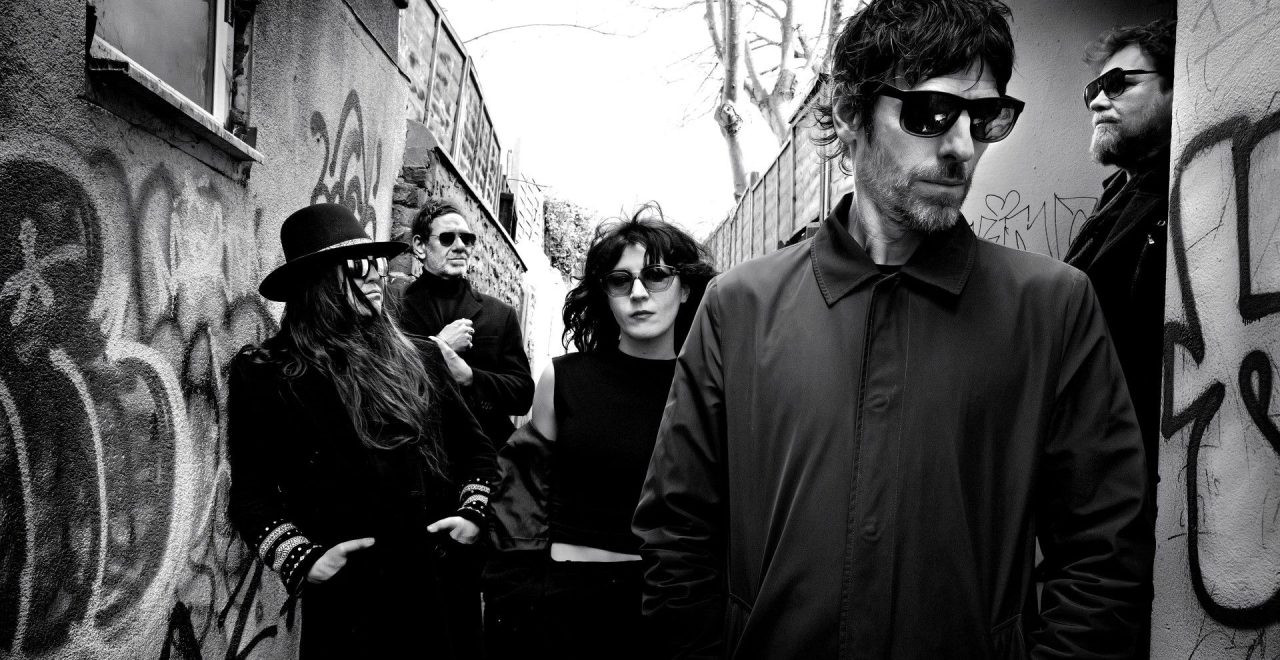
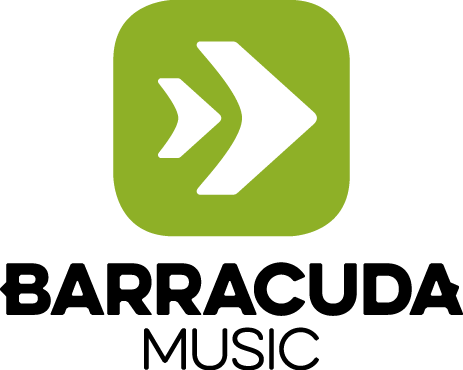
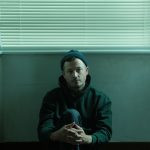

-thumbnail-150x150.jpg)
